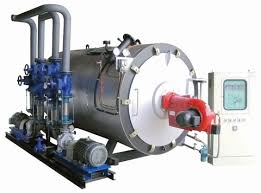
Dec . 22, 2024 07:29 Back to list
hot water boiler psi
Understanding PSI in Hot Water Boilers A Comprehensive Guide
Hot water boilers are essential components in many residential and commercial heating systems. They provide a reliable source of hot water for heating spaces and for domestic use. One of the critical factors in the operation of hot water boilers is the pressure, often measured in pounds per square inch (PSI). Understanding the role of PSI in hot water boilers can help ensure safety, efficiency, and longevity of the heating system.
What is PSI?
PSI stands for pounds per square inch, a unit of pressure. In the context of hot water boilers, PSI measures the pressure of water within the boiler system. Managing pressure is crucial to the efficient functioning of the boiler. If the pressure is too low, the boiler may not heat water effectively. Conversely, excessively high pressure can lead to dangerous situations, causing leaks or potential explosions.
Optimal Pressure Levels
Most hot water boilers operate optimally at a pressure range of 12 to 25 PSI. This allows the system to function efficiently without risking damage. For residential heating systems, a standard setting is around 12 to 15 PSI when the system is cold. When the boiler heats up, the pressure may rise to approximately 25 PSI, which is generally safe.
For commercial systems, the required PSI can differ based on the specific heating needs and the design of the heating infrastructure. However, it is essential to consult manufacturer specifications or a professional to determine the appropriate pressure.
Factors Affecting PSI in Hot Water Boilers
1. Water Temperature As water temperature increases, so does pressure. This is due to the thermal expansion of water. It's essential for operators to monitor the pressure gauge, especially after the boiler has been operating for some time.
2. Altitude The elevation of the location can affect boiling points and, consequently, the pressure within the system. Areas at higher altitudes may require adjustments to maintain the correct pressure levels.
hot water boiler psi

3. Leaks and System Integrity A leak in the system can cause a drop in pressure, resulting in inadequate heating. Regular maintenance checks can help identify and remedy potential leaks before they become significant issues.
4. Air in the System The presence of air can disrupt the water circulation and pressure levels. Proper bleeding of the system ensures that air pockets are eliminated, allowing for optimal performance.
Monitoring and Adjusting Boiler Pressure
Monitoring the PSI is typically done via a pressure gauge located on the boiler. This gauge provides real-time data about the system's pressure. It’s vital for users to periodically check the gauge, especially during the heating season.
Adjustment If the pressure fluctuates beyond the normal range, corrective measures must be taken. For low pressure, one can add water to the system by opening the water supply valve. For high pressure, it might be necessary to release some water from the system via the drain valve or consult a professional if the issue persists.
Safety Precautions
Maintaining the correct PSI in hot water boilers is not just about efficiency; it's also about safety. High-pressure situations can cause burst pipes or component failures, leading to water damage and potential harm to individuals nearby. Therefore, safety valves are incorporated into the design of hot water boilers. These valves automatically release excess pressure, preventing dangerous situations.
Regular Maintenance Regular maintenance of the boiler system is essential to ensure all components, including pressure gauges and safety valves, function correctly. Schedule professional inspections annually to guarantee the system remains safe and efficient.
Conclusion
Understanding PSI in hot water boilers is crucial for anyone responsible for operating or maintaining these systems. The correct pressure levels ensure that the boiler operates efficiently and safely, ultimately extending its service life. Regular monitoring, prompt adjustments, and adherence to safety protocols can prevent potential hazards and ensure a comfortable, heated space throughout the cold seasons. Investing time and attention into the mechanics of your hot water boiler will yield benefits of comfort and peace of mind for years to come.
-
High-Efficiency Commercial Oil Fired Steam Boiler for Industry
NewsJul.30,2025
-
High-Efficiency Biomass Fired Thermal Oil Boiler Solutions
NewsJul.30,2025
-
High Efficiency Gas Fired Thermal Oil Boiler for Industrial Heating
NewsJul.29,2025
-
High-Efficiency Gas Fired Hot Water Boiler for Sale – Reliable & Affordable
NewsJul.29,2025
-
High Efficiency Biomass Fired Hot Water Boiler for Industrial and Commercial Use
NewsJul.29,2025
-
High-Efficiency Biomass Fired Hot Water Boiler for Industrial Use
NewsJul.28,2025
Related PRODUCTS






















